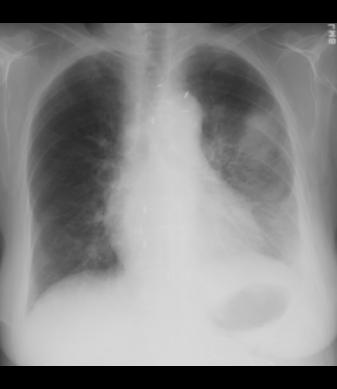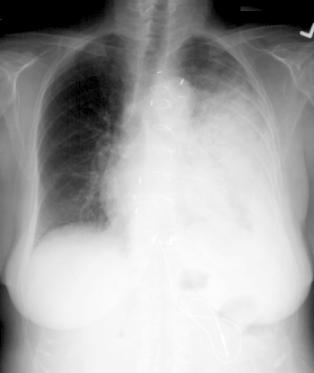PrISM Respiratory |
||||||||||||||
 |
 |
|||
This is an example of a rare type of non-cardiogenic pulmonary edema called re-expansion edema. Fluid collects in the lung due to leakage from pulmonary capillaries.
The mechanism of this process is not well understood but it is thought that it may relate to either loss of surfactant in lung that has been collapsed for some time (usually more than 2-3 days) leading to abnormal fluid dynamics, or injury to microvasculature due to prolonged collapse, with loss of resiliance and leakage from injured vessels when the lung is rapidly expanded.
The most common scenario for this condition is rapid decompression of either a large pneumothorax or rapid drainage of a large pleural effusion (as in this case). It can be fatal in up to 20% of cases, so it is important to recognize.